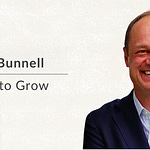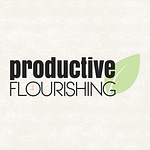Today’s guest joins us on the show for the fourth time. Susan Piver is the New York Times best-selling author of eight books, and the founder of The Open Heart Project, a completely virtual meditation center. Today, she and Charlie discuss the four noble truths of love, which is also the title of her new book. They also talk about how to minimize the suffering and discomfort that are part of all relationships.
Key Takeaways:
[2:40] - Susan’s new book is The Four Noble Truths of Love. This book presents a teaching that Susan made up, rather than her previous books that present Buddhist teachings.
[5:15] - The four noble truths of love are based on the four noble truths in Buddhism, and reconfigured to apply to intimate relationships. The core of the book is about how to sustain relationships and give love. It is about the action of relationships.
[8:10] - A relationship and a love affair are not the same thing. We assume our love affairs will turn into relationships, and our relationships will remain love affairs; unfortunately, this isn’t always the case. It’s important to identify which one you and your partner are doing, and not apply the same rules and expectations to both.
[10:10] - The four noble truths in Buddhism are: 1) “The Truth” - Life is suffering. 2) “The Cause of Suffering” - Pretending that the first noble truth is not true. 3) “The Sensation of Suffering” - Now that you know what you’re doing to cause suffering, you can stop it. 4) The Eightfold Path - Eight things you do every day to bring about sensation of suffering.
[12:00] - When Susan applied these four noble truths to her love life, she came up with her own four noble truths of love: 1) Relationships are uncomfortable - They never stabilize. 2) Thinking that relationships should be comfortable and stable is actually what causes more discomfort and instability than anything else. 3) Meeting that discomfort and instability together is love. 4) Three steps to achieve finding this love.
[16:05] - Often in relationships we expect things to go a certain way, and when they don’t, that is where the suffering comes from. They don’t have to be big things; the day to day things can cause a tremendous amount of irritation. It’s important to notice these things, and pay attention to the suffering without making it more powerful than it is.
[21:22] - What is most frightening to another person in a relationship is when we sense unconsciousness on the part of our partner. Mindfulness is key. The more awareness we can express, the better, especially about things you know your partner cares about.
[28:05] - When the small things start to build up and become too much, that’s when we can return to the four noble truths of love. The closer we are with someone, the more our lives mix, and the less we are able to see them. The way we talk to ourselves mixes with the way we talk to the other person. And the person we love most often hears this voice as much as we do ourselves. The more you can espouse a kind voice in the way you talk to yourself, the more it will be heard by your partner as well.
[30:35] - Charlie talks about the idea of how we form superorganisms in tight relationships. Meditation and mindfulness can be a reminder that we are our own beings with our own separate ways. The key thing to develop is awareness on three levels: you, your partner, and the both of you together (me, you, us).
[36:50] - Buddhism is a doing/ practicing religion. In her book The Four Noble Truths of Love, Susan applied this to five steps to development and the eightfold path of love. The five steps are a way to develop confidence. Susan translated them into how they can apply to two people. The five steps are: 1) Clean up your room. 2) Eat good food/Share food today. 3) Pay attention to the way you look. 4) Spend more time together with people who you like and who like you. 5) Spend time together in the natural world. Doing these five things helps build a container for love that attracts love.
[45:55] - The fourth noble truth of love has three components. The first type of qualities are foundational qualities (good manners and honesty). The second type of quality is called openness (the other person has equal importance to yourself in your relationship). The third quality is going beyond conventional view (look at all that happens between you and your partner as a way to deepen intimacy).
[48:30] - Susan’s invitation/ challenge for listeners is to experience your deepest longings for love without a storyline attached to them. Just feel the longing; the longing is good.
Mentioned in This Episode:
The Four Noble Truths of Love, Susan Piver
Other episodes with Susan:
Productive Flourishing Podcast Episode 4: Become More Mindful with Susan Piver
Productive Flourishing Podcast Episode 54: Demystifying Meditation with Susan Piver














Share this post